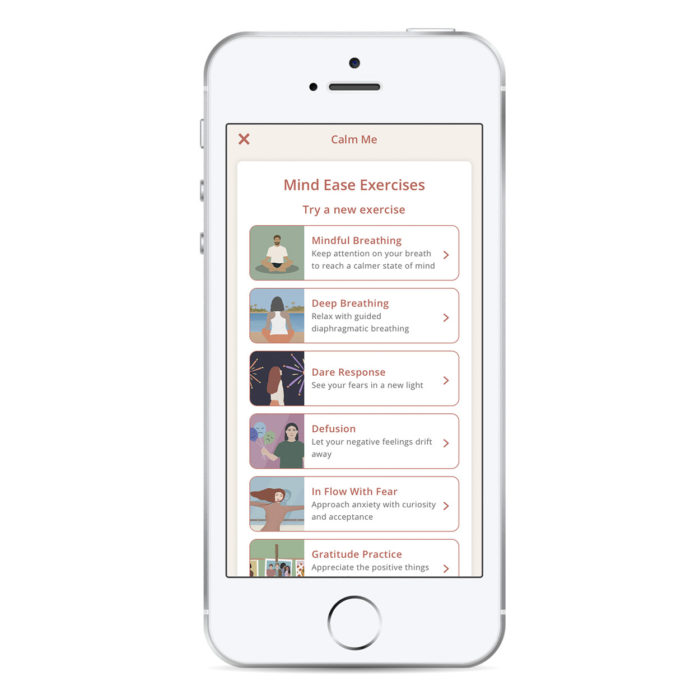Emotionally Exhausted? 7 Strategies to Stop Feeling Overwhelmed and Depressed
Many people find it useful to learn what strategies to use when feeling emotionally exhausted to prevent full-blown burnout
Many people think of exhaustion as a physical state. However, feeling emotionally exhausted can be an even greater challenge than physical exhaustion. Emotional exhaustion usually involves feeling stressed and overwhelmed alongside difficulty switching your mind off from the challenges in your life.
Anyone can feel emotionally exhausted, and people generally have different thresholds for the level of stress that leads to this state. Feeling stressed at work is a common cause, especially among people with mentally and emotionally demanding jobs—like healthcare workers, educators, and emergency services.
It is also common for parents of young children to feel emotionally exhausted, as well as people with limited social support, people who live with chronic illnesses or care for others with illnesses, or after someone experiences any kind of loss.
Feeling emotionally exhausted for a long time can lead to feeling burnout—which often involves general disengagement from work or other aspects of life, fatigue, reduced attention and memory, and sometimes depression, among other mental health challenges.
It can be helpful to know that feeling emotionally exhausted is not the same thing as burnout—emotional exhaustion is often an early warning sign of burnout. Many people find it useful to learn what strategies to use when feeling emotionally exhausted to prevent full-blown burnout (which can have bigger consequences!)
How to cope when you’re emotionally exhausted
1. Physical care
The first thing to do is to make sure that you’re taking care of your basic needs. Physical and mental health are strongly connected. The foundation for mental health—the three pillars—consist of our core physical needs: sleep, diet, and exercise.
Have you ever woken up in the morning and found that your worries from the day before suddenly don’t seem so bad anymore? A good night’s sleep can have a big impact on our mental state and ability to cope.
However, it can often be difficult to sleep when we’re emotionally exhausted, and in turn, poor sleep can make us feel worse. There are a range of strategies for improving your sleep—it is usually a good idea to make this a priority when you’re feeling emotionally exhausted.
Maintaining healthy eating habits is often another area that we can struggle with when we’re feeling emotionally exhausted. When we’re short on mental energy, we’re more likely to choose quicker and easier meal options, like fast food.
However, a balanced and nutritious diet is important for mental health and wellbeing. If you struggle to consistently prepare healthy meals, there are some great options available these days for nutritious pre-made meals that you can order in bulk, store in your freezer, and simply heat up.
Another option is to pre-make your own healthy meals on a weekend so you don’t have to worry about what you’ll be eating during the week.
The last important area of physical care is exercise. When you’re emotionally exhausted, it can often feel impossible to find the energy to be physically active. However, somewhat counterintuitively, exercise generates energy in your body and promotes the release of feel-good chemicals in your brain. So, even if you don’t feel like it, if you can commit to doing it anyway, you’ll end up feeling better for it.
2. Self-care
Self-care goes beyond taking care of your basic physical needs. Engaging in activities that make you feel good is an essential part of living a balanced and healthy life. These activities are usually different for everyone, and can include anything from relaxing activities, like taking a bath or reading a book, all the way to more stimulating activities, like competitive gaming or extreme sports—whatever is the most satisfying for you!
Many people think of these kinds of activities as things to indulge in “if there’s time”. However, putting a self-care activity on your regular to-do list and viewing it as uncompromisable can greatly improve your ability to cope with mental and emotional strain.
Not only do self-care activities feel good in the moment and help you switch off from life pressures, they also give you something to look forward to.
3. Relaxation throughout the day
While having dedicated time for self-care is often a good idea, it can also help to intersperse small moments of mental relaxation throughout your day. This could be for just a few minutes a couple of times a day in which you practice mini-mindfulness or small relaxation activities. A few minutes might not seem like much, but a small break can refresh and reset your brain and make it less likely for the stresses of the day to build up.
The Mind Ease app has a wide range of relaxing mental exercises which take less than 10 minutes, that you can do anywhere, anytime.

4. Routines and rituals
One of the most common reasons we become emotionally exhausted is due to certain circumstances in one area of our lives affecting other areas of our lives. For example, when a challenging situation at home makes it hard for us to concentrate at work, or when we continue to think about our work when we’re at home. This sort of mental crossover is extremely common, especially among those with mentally demanding jobs.
It can be helpful to find ways to mentally transition from one situation to the next. Establishing a daily routine can help our brains learn to switch between different contexts because we know what to expect.
To aid these transitions even more, you could develop rituals in-between the different parts of your day. For example, you could listen to a certain song on your way to work or way home that helps to shift your mindset, or you could practice mental strategies like mindfulness or imagery. It can be anything that helps to signify to your brain that it’s time to switch.
Separating your work and personal life can be trickier if you work from home. If this is the case for you, it might help to ensure that your workspace is in a specific area of your house and only used for work purposes, if possible. Transition rituals might be especially useful here. If your office is in a separate room, you could use the door symbolically—only think about work when the door is open, not when it’s closed. You could also change your clothes to symbolize starting and finishing work or use mindfulness or exercise to transition.
5. Boundaries
In addition to routines, it can also be helpful to set yourself boundaries for how much time and effort you will put into your work and other activities. You might like to spend some time reflecting on what you can realistically achieve over the course of a week and communicate this to others to help prevent overloading yourself. It helps to be specific about these boundaries—for instance, setting out the specific hours that you’ll dedicate to something, or having specific productivity goals.
If your work or other obligations demand more from you than you can manage, consider options for gaining extra support or rearranging your priorities.
6. Take a break
It’s often useful to recognize when you’re feeling emotionally exhausted and take a break before you become completely burnt out. Sometimes people feel that taking time off for our mental wellbeing is not justified. However, replenishing your mind is a legitimate reason to take time off.
The amount of time that you might need, or what you do with that time, will depend on your unique situation. A single day off to lay on the couch might be enough, or you might need a couple of weeks away and a change of scenery. If you’re not sure, you could start with a small break and see how you feel, then go from there.
7. Talk about it
If you’re regularly feeling overwhelmed, it can help to reach out to others. Mentally unloading your thoughts through conversation can have profound impacts on your mental health. You could talk to colleagues, friends, family, or a mental health professional.
There are mental health support lines you can call or you could connect with someone online. You could even chat to your pet—no matter your situation, there is always someone there to listen!
Sharing a mental burden with others can make it lighter.
One small step at a time
Sometimes thinking about all the things that we could or should be doing to be healthier can contribute to us feeling overwhelmed. It’s not always easy to put these strategies into practice in our day-to-day life, especially when we’ve been doing things a certain way for a long time.
First, let’s take the words “should”, “must”, and “have to” out of our vocabulary – these words only serve to put more pressure on ourselves. Instead, we can talk about our preferences – so, rather than “I should make a healthy dinner” it could be “I would prefer to have a healthy dinner”; or instead of “I have to workout at least three times a week” it could be “it is my preference to workout at least three times per week”. This can help us feel a greater sense of ownership over our choices and react less harshly on ourselves if we can’t always fulfill these goals.
Next, it can be difficult to make a lot of changes all at once. You could start by choosing just one thing from the list above to focus on, and gradually work on adding more and more strategies as things become easier. For example, you might start with a 5-minute relaxation exercise once per day, or one afternoon ritual on your way home from work and notice the difference that this alone can make – every little thing counts!
Download Mind Ease to start today.





